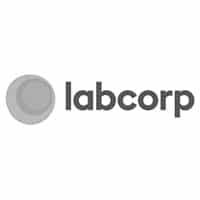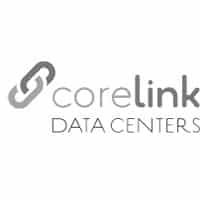Every data center is on a quest to maximize uptime and one of the most important components of data center uptime is data center batteries. There are a variety of battery types and there are advantages and disadvantages to all types. So, the specific type of data center battery that is ideal for your data center does not just boil down to one reason or another but rather, a variety of reasons.
How Important Are Data Center Batteries?
 There are many causes for data center downtime but without a reliable, maintained, high-quality battery, your data center will certainly experience downtime. Data center downtime is not just frustrating but also incredibly costly. According to a 2016 study conducted by the Ponemon Institute, the average cost of data center downtime is $740,357 and the average length of data center downtime is 95 minutes. Batteries power a data center’s UPS (uninterruptible power supply) and redundant backup power sources and if the battery does not work, a data center may find itself without power, losing money by the minute. When it comes to battery types, there is two main data center battery types that businesses use: VRLA batteries and lithium-ion batteries.
There are many causes for data center downtime but without a reliable, maintained, high-quality battery, your data center will certainly experience downtime. Data center downtime is not just frustrating but also incredibly costly. According to a 2016 study conducted by the Ponemon Institute, the average cost of data center downtime is $740,357 and the average length of data center downtime is 95 minutes. Batteries power a data center’s UPS (uninterruptible power supply) and redundant backup power sources and if the battery does not work, a data center may find itself without power, losing money by the minute. When it comes to battery types, there is two main data center battery types that businesses use: VRLA batteries and lithium-ion batteries.
What Are VRLA Batteries
 Of the two batteries being discussed, VRLA batteries have been around longer. VRLA standards for ‘valve-regulated lead-acid. But, while they may be older than lithium-ion batteries, they are still commonly used today. APC explains what VRLA batteries are and their role in the data center, “VRLA batteries have been utilized for approximately 20 years. This technology offers a higher power density and lower capital costs than traditional vented cell solutions. VRLA batteries are typically deployed within power systems rated below 500 kVA…VRLAs and MBCs are sealed systems that do not require or even permit the maintenance needed on flooded batteries.”
Of the two batteries being discussed, VRLA batteries have been around longer. VRLA standards for ‘valve-regulated lead-acid. But, while they may be older than lithium-ion batteries, they are still commonly used today. APC explains what VRLA batteries are and their role in the data center, “VRLA batteries have been utilized for approximately 20 years. This technology offers a higher power density and lower capital costs than traditional vented cell solutions. VRLA batteries are typically deployed within power systems rated below 500 kVA…VRLAs and MBCs are sealed systems that do not require or even permit the maintenance needed on flooded batteries.”
What Are the Advantages and Disadvantages of Data Center VRLA Batteries?
VRLA batteries have both advantages and disadvantages in the modern data center. The first and aforementioned advantage is that they are maintenance-free. In a complex data center world where there are many components to routinely maintain, a maintenance-free battery saves time and reduces the risk of failure from lack of maintenance. Additionally, VRLA batteries have a high-rate capacity and high charge efficiency. It is the lower cost option of the two batteries. VRLA batteries have a moderate lifespan but it is significantly shorter than that of lithium-ion batteries. While an advantage of VRLA batteries is that they are relatively easy and inexpensive to install, a disadvantage is that should something go wrong, they can be damaged through improper installation.
What Are Lithium-Ion Batteries
 Lithium-ion batteries are getting a lot of buzz and most experts are speculating that lithium-ion batteries will dominate the data center power market within a few short years. Schneider Electric explains what lithium-ion batteries are and the important role they are playing in revolutionizing data center power management, “At a general level, there are some common characteristics with all lithium-ion cells. For example, they are all rechargeable, they all use electrolyte, and lithium ions move between the electrodes. However, some specific characteristics depend on the chemistry and technology. The chemistry refers to the elements that result in a chemical reaction that charges and discharges the cell. The chemistry determines the cell voltage. Technology refers to other design characteristics (i.e. electrode thickness, electrolyte composition, coatings, additives, etc.) that ultimately determine the amount of energy (watt-hours), power (watts), energy density (watt- hours/kg), power density (watts/kg), service life, impact of temperature, stability, and a host of other characteristics.”
Lithium-ion batteries are getting a lot of buzz and most experts are speculating that lithium-ion batteries will dominate the data center power market within a few short years. Schneider Electric explains what lithium-ion batteries are and the important role they are playing in revolutionizing data center power management, “At a general level, there are some common characteristics with all lithium-ion cells. For example, they are all rechargeable, they all use electrolyte, and lithium ions move between the electrodes. However, some specific characteristics depend on the chemistry and technology. The chemistry refers to the elements that result in a chemical reaction that charges and discharges the cell. The chemistry determines the cell voltage. Technology refers to other design characteristics (i.e. electrode thickness, electrolyte composition, coatings, additives, etc.) that ultimately determine the amount of energy (watt-hours), power (watts), energy density (watt- hours/kg), power density (watts/kg), service life, impact of temperature, stability, and a host of other characteristics.”
What Are the Advantages and Disadvantages of Data Center Lithium Ion Batteries?
Lithium-ion batteries offer many advantages with few disadvantages but there is one main factor that remains a deterrent for some data centers – cost. Lithium-ion batteries cost a significant amount more than VRLA batteries so the upfront investment may feel too large for some data centers. But, when you look at the TCO (total cost of ownership), lithium-ion batteries tend to have a lower total cost of ownership. One of the reasons the TCO is lower is that lithium-ion batteries last significantly longer than VRLA batteries.
 Schneider Electric describes the lifetime of service that lithium-ion batteries have to offer and why that should weigh heavily in the decision when choosing between VRLA and lithium ion, “How long a battery lasts before you need to replace it is what really matters when it comes to battery lifetime. However, it’s important to understand the different metrics suppliers use to measure lifetime. Of particular importance is service life. This is the estimated time a battery will last before it reaches 80% of its energy capacity, the typical definition of end of life for batteries. Service life assumes the battery is operating under “real world” conditions for a stated application and is therefore highly variable. In contrast, calendar life is the estimated time a battery will last if it were to remain trickle charged for its entire life with no power outages at a specified temperature, usually 25°C (77°F). VRLA batteries have a service life in the range of 3-6 years whereas li-ion batteries can have a service life upwards of 10 years (estimated using accelerated life testing). Note that it will be several years before data on actual service life becomes available for newer li-ion batteries, however, some li-ion batteries offer warranties in the 10 year range as a hedge against the lack of service data…The 10-year TCO considers the capital and operational expenses above. The li-ion battery solution has a 39% lower 10-year TCO than the VRLA solution. The cash flows for this analysis result in a simple payback of 3.4 years to breakeven from the higher li-ion capital expense at year 0…It is safe to say that Lithium-ion battery prices will continue to decrease, new chemistries and technologies will be brought to market, and improvements will be made to existing ones. With this backdrop and the analysis presented in this paper, Lithium-ion battery systems for data center UPS applications (and UPS applications in general) offer compelling benefits. While some li-ion solution prices are too high to justify switching from VRLA, there are some that present a favorable 10-year TCO with payback in less than 4 years.”
Schneider Electric describes the lifetime of service that lithium-ion batteries have to offer and why that should weigh heavily in the decision when choosing between VRLA and lithium ion, “How long a battery lasts before you need to replace it is what really matters when it comes to battery lifetime. However, it’s important to understand the different metrics suppliers use to measure lifetime. Of particular importance is service life. This is the estimated time a battery will last before it reaches 80% of its energy capacity, the typical definition of end of life for batteries. Service life assumes the battery is operating under “real world” conditions for a stated application and is therefore highly variable. In contrast, calendar life is the estimated time a battery will last if it were to remain trickle charged for its entire life with no power outages at a specified temperature, usually 25°C (77°F). VRLA batteries have a service life in the range of 3-6 years whereas li-ion batteries can have a service life upwards of 10 years (estimated using accelerated life testing). Note that it will be several years before data on actual service life becomes available for newer li-ion batteries, however, some li-ion batteries offer warranties in the 10 year range as a hedge against the lack of service data…The 10-year TCO considers the capital and operational expenses above. The li-ion battery solution has a 39% lower 10-year TCO than the VRLA solution. The cash flows for this analysis result in a simple payback of 3.4 years to breakeven from the higher li-ion capital expense at year 0…It is safe to say that Lithium-ion battery prices will continue to decrease, new chemistries and technologies will be brought to market, and improvements will be made to existing ones. With this backdrop and the analysis presented in this paper, Lithium-ion battery systems for data center UPS applications (and UPS applications in general) offer compelling benefits. While some li-ion solution prices are too high to justify switching from VRLA, there are some that present a favorable 10-year TCO with payback in less than 4 years.”
What Does the Future Hold for Data Center Batteries?
It is no secret that most experts are predicting that lithium-ion batteries are the way of the future in data centers. But, it will take time and significant investment for legacy data centers to convert from VRLA to lithium ion. VRLA batteries are not going extinct, they will still be heavily used in data centers, but the future of lithium-ion is looking bright. With new data center construction, many data centers are looking for the cleanest energy sources that leave the smallest footprint and have the lowest total cost of ownership, and that is lithium ion. Schneider Electric reports that a recent projections from Bloomberg New Energy Finance point out just how huge lithium-ion batteries will be in the future of data center power, “That’s the gist of a new report from Bloomberg New Energy Finance[1], which forecasts that in 2025 Li-ion batteries will account for 5.6GWh of data center battery backup capacity, as compared to 8.3GWh for traditional valve-regulated lead-acid (VRLA) batteries (see Figure 1 below). That means Li-ion technology will snatch 40% of market share in just 8 years. In a market that’s not exactly known for making rapid technological shifts, that is nothing short of remarkable. While VRLA has much lower upfront cost today, lithium-ion batteries will experience significant cost reductions, driven by sizeable ramp-up in demand in the coming decade, much of which will be for electric vehicles. This cost reduction and increasing familiarity with the use of lithium-ion batteries for back-up in data centers will help ramp up adoption in this timeframe.”




























